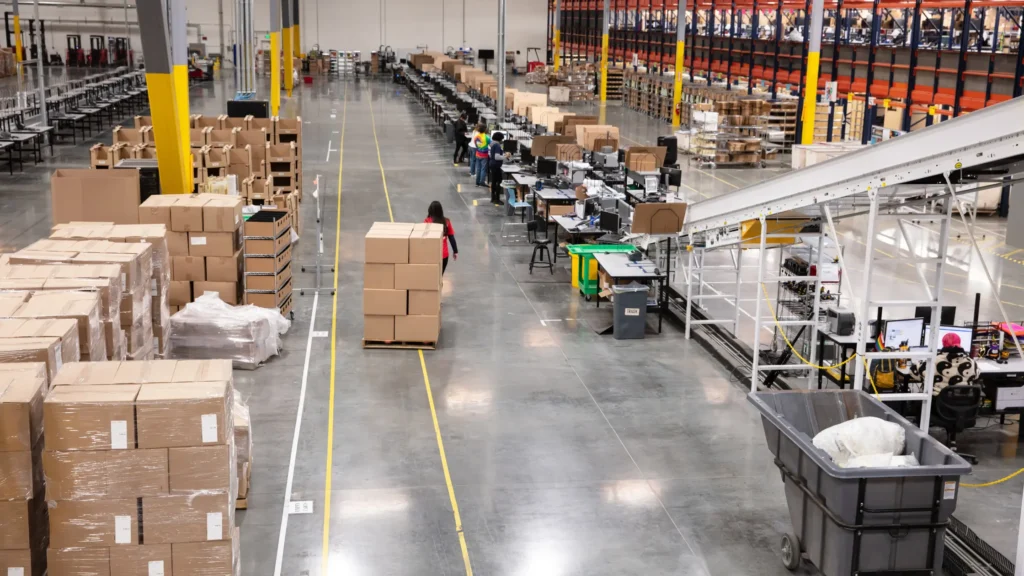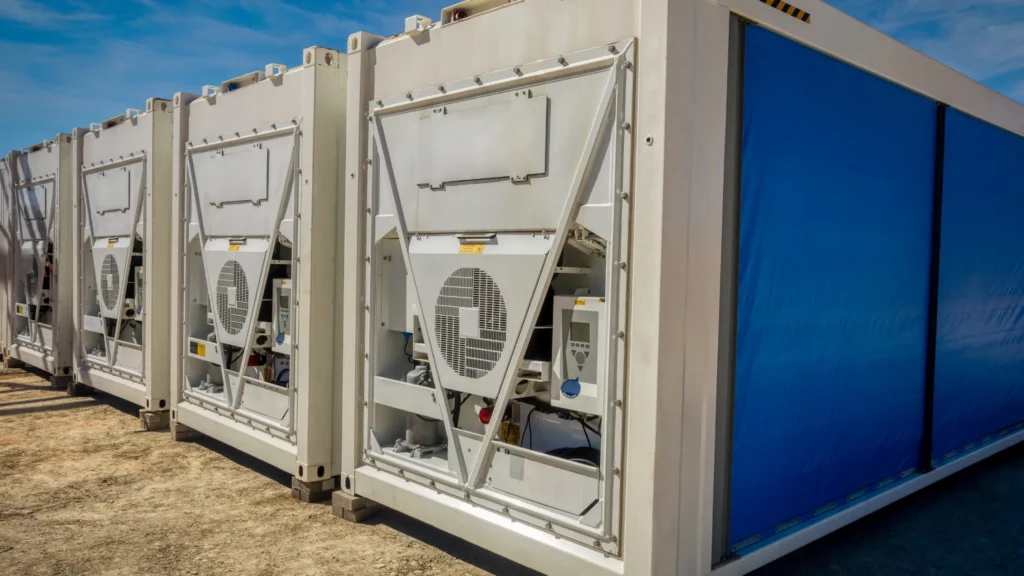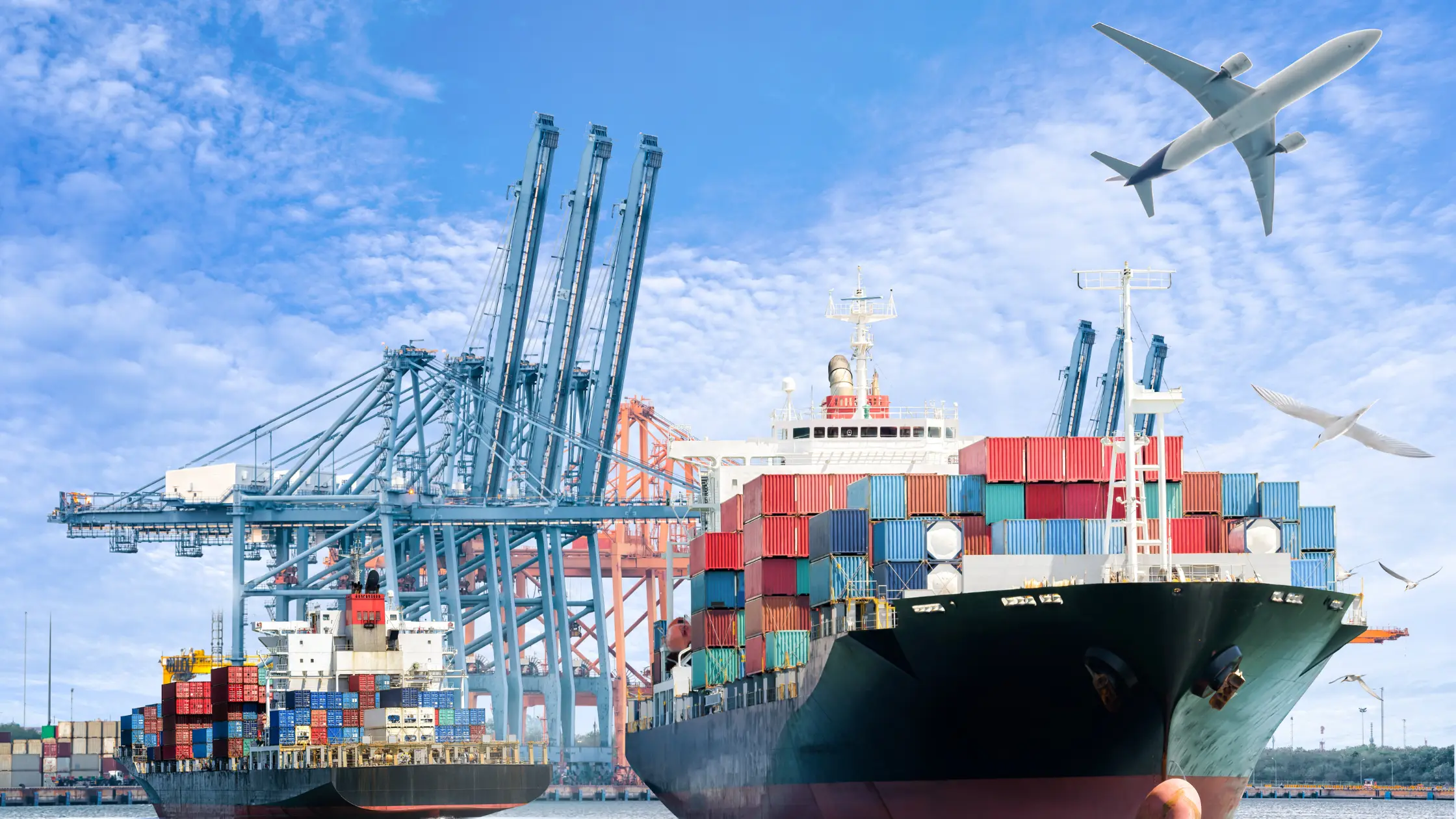The logistics landscape is on the brink of a revolutionary transformation in 2024, as emerging technologies and changing consumer demands reshape the way goods move across the globe. Entrepreneurs keen on making their mark in this dynamic industry have a plethora of opportunities to explore. In this comprehensive guide, we will delve into 17 logistics business ideas in 2024 that are poised to redefine the supply chain. Each idea is not just a trend but a potential avenue for growth and success. As we navigate through these innovative concepts, the underlying theme is clear – adaptability and foresight are key to thriving in the logistics sector.
Autonomous Vehicles for Last-Mile Delivery
Autonomous vehicles for last-mile delivery have captured the imagination of logistics enthusiasts worldwide. The use of drones and self-driving vehicles promises to revolutionize the final leg of the delivery process, making it more efficient and cost-effective. Recent statistics indicate that the market for autonomous last-mile delivery is expected to grow by an impressive 23% annually, reaching a staggering $12.8 billion by 2024. This surge is indicative of the industry’s growing confidence in autonomous technology and its potential to reshape the logistics landscape.
The implementation of autonomous last-mile delivery is not only about cutting-edge technology but also about addressing real-world challenges. With traffic congestion and delivery time constraints being perennial issues, autonomous vehicles present a viable solution. Companies investing in this technology can gain a competitive edge by offering faster and more reliable last-mile delivery services, meeting the increasing expectations of today’s on-the-go consumers.
E-commerce Fulfillment Centers

The exponential growth of online shopping has led to an unprecedented demand for e-commerce fulfillment centers. These centers act as the backbone of online retail, facilitating the efficient sorting, packaging, and shipping of products to customers’ doorsteps. As the e-commerce market continues its upward trajectory, the logistics of managing these fulfillment centers become increasingly complex. Entrepreneurs eyeing this segment should be aware that the global e-commerce logistics market is projected to reach a staggering $862.8 billion by 2024.
The opportunity lies not only in providing traditional fulfillment services but also in innovating to meet the evolving needs of e-commerce businesses. The rise of same-day and next-day delivery expectations necessitates logistics solutions that are not just fast but also scalable. Entrepreneurs can explore automated fulfillment processes, robotic warehouses, and data-driven analytics to optimize operations and meet the growing demands of e-commerce giants.
Sustainable Packaging Solutions
Environmental consciousness is permeating every industry, and logistics is no exception. The shift towards sustainable packaging solutions is not just a trend but a necessity in the wake of growing environmental concerns. Entrepreneurs with an eye for eco-friendly materials, such as biodegradable plastics and reusable packaging options, can tap into a market that is projected to grow at a CAGR of 7.4% between 2021 and 2024.
The demand for sustainable packaging is driven by both consumer preferences and regulatory changes. As consumers become more environmentally conscious, they are actively seeking products and services that align with their values. Entrepreneurs can position themselves as pioneers in this space by offering logistics solutions that prioritize sustainability. Moreover, with governments worldwide tightening regulations around packaging waste, businesses adopting green logistics practices are likely to stay ahead of compliance requirements and build a positive brand image.
Cold Chain Logistics
The pharmaceutical and food industries increasingly rely on cold chain logistics to ensure the safe and efficient transportation of temperature-sensitive products. As these industries expand, so does the demand for specialized cold storage and transportation services. The global cold chain logistics market is estimated to reach a substantial $447.5 billion by 2024, indicating this segment’s critical role in the overall logistics industry.
Entrepreneurs eyeing the cold chain logistics market need to understand the intricacies involved in maintaining specific temperature conditions throughout the supply chain. From pharmaceuticals to fresh produce, the need for precise temperature control is non-negotiable. Investing in state-of-the-art refrigeration technology, real-time monitoring systems, and specialized transport vehicles can position entrepreneurs as reliable partners in ensuring the integrity of temperature-sensitive goods.
Technology-driven Inventory Management
Inventory management lies at the heart of efficient logistics operations, and technology is transforming how businesses approach it. The integration of advanced technologies such as RFID (Radio-Frequency Identification) and IoT (Internet of Things) has ushered in an era of accuracy and efficiency in inventory tracking. Entrepreneurs can capitalize on the demand for technology-driven inventory management solutions, with the global market for RFID in the logistics sector expected to reach $11.2 billion by 2024.
The benefits of technology-driven inventory management are multifold. Businesses adopting RFID and IoT solutions gain real-time visibility into their inventory, reducing the likelihood of stockouts or overstock situations. Automation in data collection and analysis not only saves time but also minimizes human errors. Entrepreneurs entering this space should focus on providing scalable and customizable solutions that cater to the diverse needs of businesses across different industries.
On-Demand Warehousing
Traditional warehousing models often involve long-term leases and commitments, which may not align with the flexible needs of modern businesses. The concept of on-demand warehousing addresses this gap by providing a flexible solution for companies with fluctuating storage requirements. Entrepreneurs entering this space can offer warehousing services on a short-term basis, allowing businesses to scale their storage space as needed. The market for on-demand warehousing is expected to witness significant growth, reaching $51.6 billion by 2024.
The appeal of on-demand warehousing lies in its adaptability. Businesses no longer need to invest in large, fixed spaces but can instead utilize warehouse space as an operational expense. Entrepreneurs can explore innovative solutions such as automated inventory management, order fulfillment services, and real-time tracking to differentiate their on-demand warehousing offerings in a competitive market.
Reverse Logistics Solutions
As the e-commerce industry continues to grow, the need for efficient reverse logistics solutions becomes more pronounced. Managing product returns, recycling, and refurbishing processes is a complex undertaking, and entrepreneurs can position themselves as solution providers in this space. The reverse logistics market is projected to grow at a CAGR of 4.6% from 2021 to 2024, reaching a substantial $603.90 billion.
The challenges in reverse logistics extend beyond merely handling returned products. Entrepreneurs need to consider the environmental impact of returned goods, compliance with regulations around recycling, and the potential for refurbishing products for resale. A comprehensive reverse logistics solution can streamline these processes, providing businesses with a cost-effective and sustainable way to manage product returns.
Blockchain in Supply Chain
Blockchain technology, known for its secure and transparent nature, is gaining traction in the logistics industry. Its ability to enhance transparency and traceability in the supply chain has led to increased interest from businesses looking to optimize their operations. Entrepreneurs exploring logistics business ideas in 2024 centered around blockchain can tap into a market expected to reach $3.3 billion by 2024, with a remarkable CAGR of 49.3%.
Blockchain’s impact on the supply chain is profound. It provides an immutable and decentralized ledger that ensures the integrity of transactions and reduces the risk of fraud. From tracking the origin of products to verifying the authenticity of documents, blockchain technology offers a transformative solution to long-standing challenges in logistics. Entrepreneurs can develop blockchain-based platforms for secure transactions, smart contracts, and real-time visibility across the supply chain.
Urban Warehousing
The rise of urbanization brings with it unique challenges for logistics, particularly in densely populated urban areas. Entrepreneurs can explore opportunities in urban warehousing, strategically locating storage facilities within cities to minimize transportation costs and reduce delivery times. The urban warehousing market is expected to grow at a CAGR of 12.2% by 2024, reaching a substantial $57.5 billion.
The key to success in urban warehousing lies in optimizing space and leveraging technology for efficient operations. Entrepreneurs can invest in automated storage and retrieval systems, advanced inventory management solutions, and environmentally friendly transportation options to navigate the complexities of urban logistics. By doing so, they can cater to the growing demand for quick and reliable delivery services in urban centers.
Predictive Analytics for Demand Forecasting
Predictive analytics is increasingly becoming a cornerstone of successful logistics operations, particularly in the realm of demand forecasting. Entrepreneurs can explore business ideas that leverage data analytics to predict future demand patterns, optimizing inventory and distribution processes. The global market for predictive analytics in logistics is projected to reach $4.6 billion by 2024, growing at a CAGR of 22.4%.
The power of predictive analytics lies in its ability to analyze historical data, identify patterns, and forecast future demand with a high degree of accuracy. By integrating predictive analytics into their operations, logistics businesses can streamline their supply chain, reduce excess inventory, and respond proactively to market fluctuations. Entrepreneurs entering this space should focus on developing user-friendly platforms that enable businesses of all sizes to harness the benefits of predictive analytics.
Augmented Reality (AR) in Warehousing
Augmented Reality (AR) is not just a tool for gaming; it is making significant inroads into the warehousing sector, enhancing worker efficiency and accuracy. Entrepreneurs can explore AR solutions for order picking, navigation, and training purposes, creating a more immersive and streamlined warehouse experience. The global market for AR in logistics is expected to reach $8.3 billion by 2024, with a notable CAGR of 29.1%.
In the context of warehousing, AR overlays digital information onto the physical environment, providing workers with real-time guidance and information. This can significantly reduce errors in order picking, enhance the speed of operations, and contribute to overall workforce productivity. Entrepreneurs venturing into AR for logistics should focus on developing user-friendly applications that seamlessly integrate with existing warehouse management systems.
Green Logistics
Sustainability is no longer a mere buzzword; it is a fundamental consideration in every industry, including logistics. Entrepreneurs can venture into green logistics by offering eco-friendly transportation options, optimizing routes for fuel efficiency, and adopting energy-efficient technologies. The green logistics market is expected to grow at a CAGR of 7.2% by 2024, reaching a significant $1.7 trillion.
The appeal of green logistics extends beyond environmental responsibility. Businesses are increasingly recognizing the cost-saving benefits of energy-efficient practices, from reduced fuel consumption to lower emissions. Entrepreneurs can position themselves as leaders in green logistics by investing in electric or hybrid vehicles, implementing sustainable packaging solutions, and adopting renewable energy sources for their operations.
Smart Containers

The advent of the Internet of Things (IoT) has given rise to smart containers equipped with sensors that provide real-time tracking and monitoring of goods during transit. Entrepreneurs can explore opportunities to offer smart container solutions to enhance visibility and security in the supply chain. The global market for smart containers is projected to reach $5.3 billion by 2024, growing at a remarkable CAGR of 26.7%.
Smart containers go beyond traditional tracking systems by providing a wealth of data, including temperature, humidity, and even potential shocks or impacts during transportation. This level of visibility is invaluable for businesses dealing with sensitive or high-value goods. Entrepreneurs entering the smart container market should focus on developing robust and secure IoT solutions that provide real-time insights and analytics for enhanced supply chain management.
Autonomous Forklifts
The automation wave is not limited to last-mile delivery; it is making significant strides within warehouse operations as well. Autonomous forklifts, equipped with sensors and navigation systems, are increasingly becoming integral to logistics. Entrepreneurs can tap into this emerging market by providing autonomous forklift solutions. The global market for autonomous forklifts is expected to reach $5.8 billion by 2024, with a noteworthy CAGR of 19.8%.
Autonomous forklifts offer advantages in terms of efficiency, safety, and cost-effectiveness. By removing the need for human operators, businesses can streamline their warehouse operations, reduce the risk of accidents, and optimize the use of space. Entrepreneurs entering this space should focus on developing autonomous forklifts with advanced safety features, easy integration with existing warehouse systems, and scalability to accommodate various warehouse sizes and layouts.
Robotic Process Automation (RPA) in Logistics

Robotic Process Automation (RPA) is transforming the logistics landscape by automating repetitive tasks, from data entry to order processing. Entrepreneurs can explore logistics business ideas in 2024 centered around implementing RPA solutions to improve operational efficiency. The global market for RPA in logistics is anticipated to reach $5.2 billion by 2024, growing at a CAGR of 21.4%.
The benefits of RPA in logistics are far-reaching. By automating routine tasks, businesses can free up human resources to focus on more complex and strategic aspects of their operations. RPA can be applied to various processes, including invoice processing, order fulfillment, and inventory management. Entrepreneurs entering this space should focus on developing RPA solutions that are easily customizable, integrate seamlessly with existing systems, and provide measurable improvements in efficiency and accuracy.
Drone Logistics
Drones have transcended their recreational origins and are now revolutionizing the delivery landscape, especially in remote or challenging terrains. Entrepreneurs can explore opportunities in drone logistics for faster and more efficient delivery services. The global market for drone logistics is projected to reach $11.2 billion by 2024, growing at a notable CAGR of 19.7%.
Drone logistics offer unparalleled advantages in terms of speed, cost-effectiveness, and accessibility. In areas with challenging terrain or limited infrastructure, drones can navigate swiftly, delivering goods to remote locations. Entrepreneurs venturing into drone logistics should navigate regulatory considerations, develop robust safety measures, and focus on creating scalable and reliable drone delivery solutions.
Cybersecurity for Logistics
As the logistics industry becomes more digitally connected, the need for robust cybersecurity solutions is paramount. Entrepreneurs can venture into providing cybersecurity services to safeguard sensitive data and ensure the integrity of the supply chain. The global market for cybersecurity in logistics is expected to reach $15.2 billion by 2024, with a notable CAGR of 12.6%.
The increasing digitization of logistics operations introduces new vulnerabilities, making cybersecurity a critical aspect of risk management. Entrepreneurs in this space should focus on developing comprehensive cybersecurity solutions that encompass data encryption, threat detection, and secure communication channels. As logistics businesses handle vast amounts of sensitive information, the demand for robust cybersecurity measures is only set to grow in the coming years.
Your Best Bet with These Amazing Logistics Business Ideas in 2024
The logistics industry in 2024 presents a landscape ripe with opportunities for entrepreneurs who dare to innovate. The 17 logistics business ideas in 2024 explored in this guide are not just predictions but tangible avenues for growth and success. Whether it’s embracing the autonomy of vehicles, revolutionizing warehousing with augmented reality, or safeguarding the digital realm with cybersecurity solutions, the key to success lies in adaptability and foresight.
Navigating the future of logistics requires a keen understanding of industry trends, technological advancements, and the evolving needs of businesses and consumers. As entrepreneurs embark on their journey into the logistics sector, they must stay attuned to the dynamic nature of the industry and be ready to embrace change. The logistics businesses of tomorrow will be those that can seamlessly integrate innovation, sustainability, and efficiency into their operations, ultimately shaping the future of supply chain management.
